Africa
World leaders converge on Rome for Pope’s funeral

More than 250,000 people paid their last respects to Pope Franci over three days of public viewing by ordinary mourners and statesmen alike that ended Friday, the eve of his state funeral in St. Peter’s Square and burial in a basilica outside the Vatican’s walls.
World leaders, including U.S. President Donald Trump and Argentine President Javier Milei, along with royalty, converged on Rome for the funeral, but the group of marginalized people who will meet his casket in a small crosstown basilica are more in keeping with Francis’ humble persona and disdain for pomp.
The Vatican said that 164 delegations are confirmed, including 54 heads of state and 12 reigning sovereigns. French President Emmanuel Macron, who will also attend the funeral, was among those who made it in time to pay last respects to the pope.
Papal burial
In keeping with Francis’ embrace of the marginalized, the Vatican said a group of poor and needy people will meet the pope’s coffin to pay homage to him when it arrives at St. Mary Major Basilica for burial on Saturday. It has already become a point of pilgrimage.
The tomb is being prepared behind a wooden barrier within the basilica that he chose to be near an icon of the Madonna that he revered and often prayed before. The burial will take place in private, the Vatican said.
Photos released by the Vatican on Friday show the marble tombstone flat against the pavement, with the simple engraving in Latin that he requested in his last testament: “Franciscus.”
Cardinals will visit the St. Mary Major Basilica on Sunday. Entering through the Holy Door, they will visit the Salus Populi Romani icon, which was dear to Francis, and celebrate evening prayers, the Vatican said.
Security measures
Italy is deploying more than 2,500 police officers and 1,500 soldiers to provide security during the funeral, which is expected to gather about 200,000 mourners in St. Peter’s Square and up to 300,000 people along the 4-kilometer (2½-mile) route from the Vatican to the pope’s burial place across Rome.
The major security operation includes stationing an armed naval vessel off the coast, and putting squads of fighter jets on standby, Italian media reported.
Africa
Ramaphosa suspends police minister amid corruption allegations
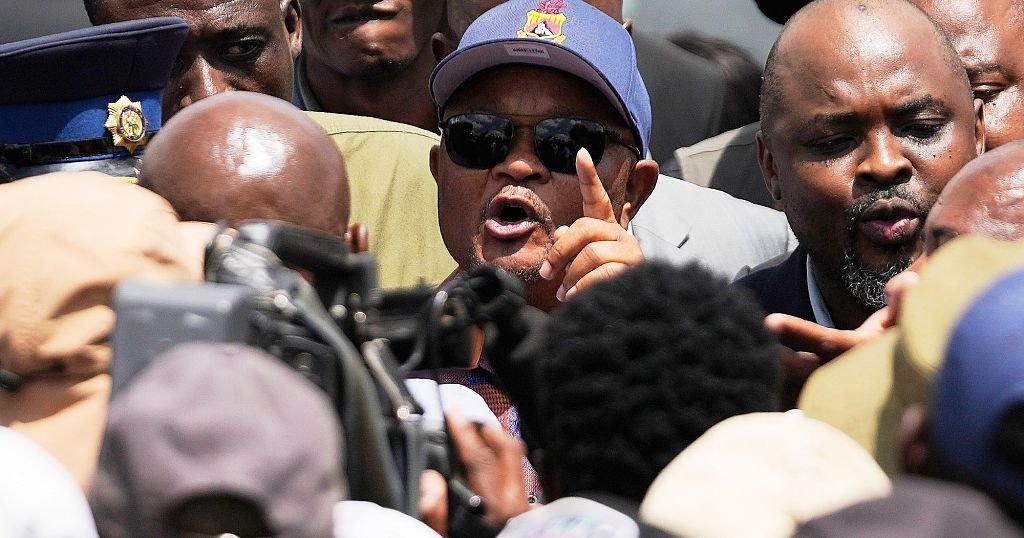
South African President Cyril Ramaphosa has suspended Police Minister Senzo Mchunu following serious allegations made by General Nhlanhla Mkhwanazi, a top police official. Mkhwanazi accused Mchunu and Deputy Police Commissioner Shadrack Sibiya of interfering in sensitive investigations and colluding with criminal syndicates.
The suspension comes amid growing concern over alleged political interference within key law enforcement agencies. President Ramaphosa announced the decision publicly, stating, “In order for the Commission to execute its functions effectively, I have decided to put the Minister of Police Mr Senzo Mchunu on a leave of absence with immediate effect. The Minister has undertaken to give his full cooperation to the Commission to enable it to work properly.”
Ramaphosa has appointed Professor Firoz Cachalia as acting Minister of Police. Meanwhile, Mkhwanazi further alleged that Mchunu and Sibiya disbanded a critical crime-fighting unit that was investigating a string of politically motivated killings. These killings were reportedly linked to organized criminal networks.
The President also outlined the scope of the inquiry. “The Commission will investigate the role of current or former senior officials in certain institutions who may have aided or abetted the alleged criminal activity; or failed to act on credible intelligence or internal warnings; or benefited financially or politically from a syndicate’s operations,” Ramaphosa said.
Opposition parties have criticized the President for not taking stronger action. They argue that placing Mchunu on leave falls short of accountability and have called for his immediate dismissal instead.
Africa
Cameroon’s Paul Biya, 92, announces bid for another term
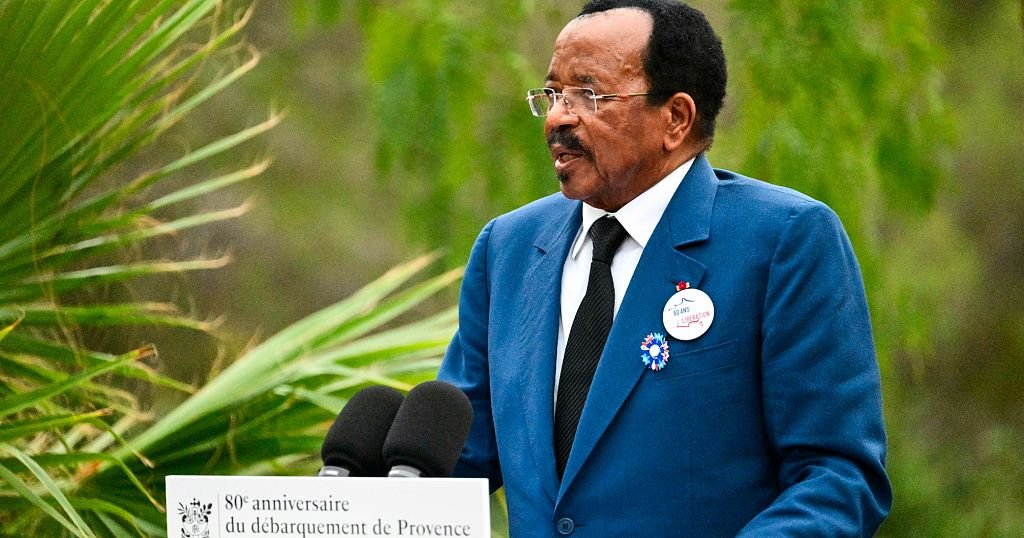
Cameroon’s longtime leader, President Paul Biya, has officially announced he will run for another term in office, ending months of speculation over his political future. The 92-year-old made the announcement on social media, stating his continued determination to serve and promising that “the best is yet to come.”
Biya has been at the helm of Cameroon for over 40 years, making him the second longest-serving president in Africa. His decision to seek re-election has sparked criticism from opposition figures and human rights advocates. One prominent activist described the announcement as a clear sign of Cameroon’s stalled political transition, adding that the country is in urgent need of democratic change and accountable leadership.
In 2018, Biya secured a controversial victory with over 70 percent of the vote. That election was marked by allegations of fraud, low voter turnout, and violence.
The country’s conflict-ridden English-speaking regions have been deeply affected by a separatist crisis that has forced thousands of students out of school and led to deadly clashes between security forces and armed groups.
Throughout his presidency, Biya has faced accusations of corruption and failure to address national grievances. His frequent absences from the country for medical treatment have also raised concerns about his health and ability to govern effectively.
As the country heads toward another election cycle, Biya’s bid for another term promises to be a polarizing chapter in Cameroon’s already complex political landscape.
Africa
Nigerian ex-president Buhari dies at 82 in London
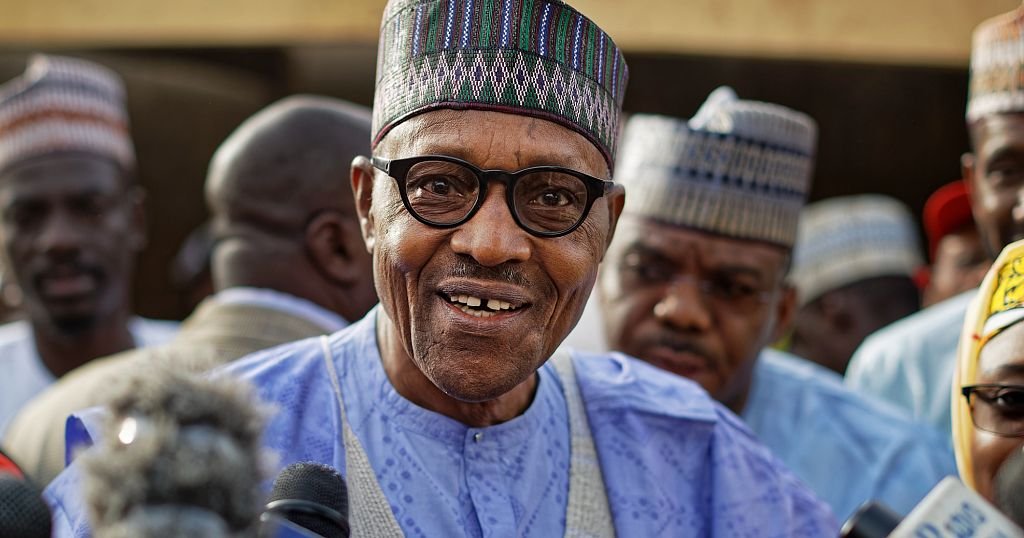
Muhammadu Buhari died Sunday in London, where he had been receiving medical treatment.
He first took power in Africa’s most populous nation in 1983, after a military coup, running an authoritarian regime until fellow soldiers ousted him less than 20 months later. When he was elected in 2015 on his fourth attempt, he became the first opposition candidate to win a presidential election there.
Buhari rode into power in that election on a wave of goodwill after promising to rid Nigeria of chronic corruption and a deadly security crisis. He led until 2023, during a period marked by Boko Haram’s extremist violence in the northeast and a plunging economy.
Current President Bola Tinubu in a statement described Buhari as “a patriot, a soldier, a statesman … to the very core.” Tinubu dispatched the vice president to bring Buhari’s body home from London.
Others across Nigeria remembered Buhari as a president who left the country of more than 200 million people — divided between a largely Muslim north and Christian south — more at odds than before.
“The uneven response to Buhari’s death, with muted disillusionment in some quarters and sadness in others, is a reflection of how difficult it is to unite a country and his inability to do so after decades in the public eye,” said Afolabi Adekaiyaoja, an Abuja-based political scientist.
Coming from Nigeria’s north, the lanky, austere Buhari had vowed to end extremist killings and clean up rampant corruption in one of Africa’s largest economies and oil producers.
By the end of his eight-year tenure, however, goodwill toward him had faded into discontent. Insecurity had only grown, and corruption was more widespread.
Nigeria also fell into a recession amid slumping global oil prices and attacks by militants in the sprawling oil-rich Niger Delta region. The currency faltered as Buhari pursued unorthodox monetary policies to defend its fixed price to the dollar, and a massive foreign currency shortage worsened. Inflation was in the double digits.
Civil society accused him of authoritarian tendencies after protesters were killed during a protest against police brutality and over his decision to restrict access to social media, as young people vented their frustrations against economic and security problems.
Buhari’s attempts at managing the problems were complicated by prolonged medical stays abroad. His absences, with few details, created anxiety among Nigerians and some calls for him to be replaced. There also was anger over his seeking taxpayer-funded health care abroad while millions suffered from poor health facilities at home.
“I need a longer time to rest,” the president once said in a rare comment during his time away.
His presidency saw a rare bright moment in Nigeria’s fight against Boko Haram — the safe return of dozens of Chibok schoolgirls seized in a mass abduction in 2014 that drew global attention.
But others among the thousands of people abducted by Boko Haram over the years remain missing — a powerful symbol of the government’s failure to protect civilians.
At the end of 2016, Buhari announced that the extremist group had been crushed, driven by the military from its remote strongholds.
“The terrorists are on the run, and no longer have a place to hide,” he boasted.
But suicide bombings and other attacks remained a threat, and the military’s fight against Boko Haram continued to be hurt by allegations of abuses by troops against civilians. In early 2017, the accidental military bombing of a displaced persons camp in the northeast killed more than 100 people, including aid workers. The U.N. refugee chief called the killings “truly catastrophic.”
As Nigeria’s military reclaimed more area from Boko Haram’s control, a vast humanitarian crisis was revealed. Aid groups began alerting the world to people dying from malnutrition, even as government officials denied the crisis and accused aid groups of exaggerating the situation to attract donations.
The extremist threat and humanitarian crisis in the northeast — now exacerbated by Trump administration aid cuts — continues today.
Years earlier, as Nigeria’s military ruler, Buhari oversaw a regime that executed drug dealers, returned looted state assets and sent soldiers to the streets with whips to enforce traffic laws. With oil prices slumping and Nigerians saying foreigners were depriving them of work, the regime also ordered an estimated 700,000 illegal immigrants to leave the country.
Meanwhile, government workers arriving late to their offices were forced to perform squats in a “war against indiscipline” that won many followers. Buhari’s administration, however, was also criticized by rights groups and others for detaining journalists critical of the government and for passing laws that allowed indefinite detention without trial.
As he pursued the presidency decades later, Buhari said he had undergone radical changes and that he now championed democracy. But some of his past stances haunted him, including statements in the 1980s that he would introduce Islamic law across Nigeria.
-
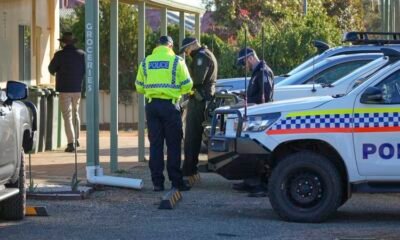
 Europe3 days ago
Europe3 days agoGerman tourist found alive 12 days after she was lost in the Australian Outback
-

 Sports3 days ago
Sports3 days agoBill Ackman: Swift backlash after billionaire’s pro debut
-

 Europe5 days ago
Europe5 days agoBondi and Hegseth might be messing up — but they’re doing what Trump picked them to do
-
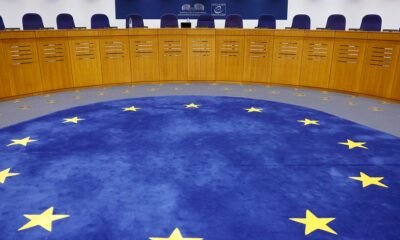
 Africa5 days ago
Africa5 days agoTop European court delivers series of damning rulings against Russia
-

 Europe3 days ago
Europe3 days agoAs South Korea becomes a key arms supplier to US allies, its best customer is on the edge of a warzone
-
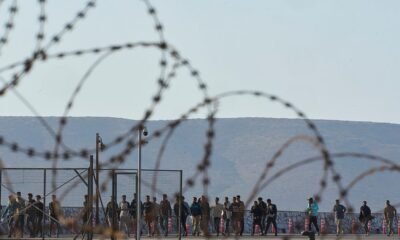
 Africa5 days ago
Africa5 days agoGreece blocks asylum claims after surge in migrant arrivals
-

 Lifestyle4 days ago
Lifestyle4 days agoHealthy workday snacks include a smart mix of energy-boosters
-

 Lifestyle3 days ago
Lifestyle3 days agoOne Tech Tip: All the ways to unsubscribe, after ‘click-to-cancel’ was blocked




